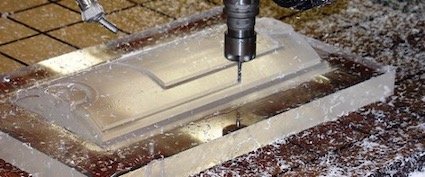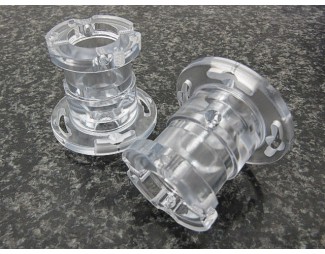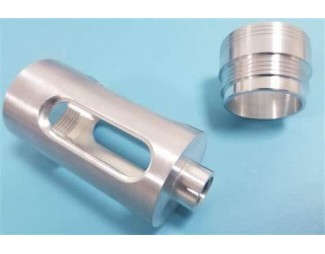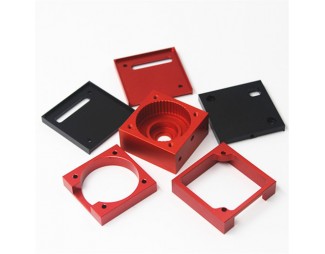Acrylic CNC Machining
Acrylic (PMMA) is a highly desirable material due to its strength, toughness, and transparency. But relying on conventional machining processes to cut acrylic can be a complicated procedure: the material is highly fragile and any excess force can cause unwanted breakages.
CNC machining, however, offers a reliable way to fabricate acrylic parts safely, with a high degree of accuracy and minimal waste of acrylic material. CNC machining results in very few errors, making it possible to create high-quality acrylic parts and prototypes such as headlamps, casings, jewelry, and more.

Advantages of Acrylic Machining
As a CNC machining material, PMMA or acrylic has many inherent benefits. And choosing to CNC machine acrylic instead of molding or 3D printing it can result in additional benefits. Some of the key advantages of machined acrylic include:
· Excellent transparency comparable to glass
· Excellent dimensional stability
· Good tensile strength and flexural strength
· Good level of insulation
· Abrasion resistance
· UV and sunlight resistance
· Lightweight compared to glass
· Good biocompatibility
· Relatively low cost
· Can be bonded with solvents
· Easy to polish
· Available in various colors
· Recyclable
Limitations or disadvantages of acrylic include its relatively low impact strength and brittle nature, as well as its average chemical and heat resistance. Polycarbonate (PC) is usually preferable for applications that require high impact strength.
Applications of acrylic machining
Machined acrylic has many industrial uses, with the material most widespread in the optical and automotive industries.
Glass alternative
Because of its excellent transparency and level of clarity, acrylic is used as a shatterproof glass alternative in many industries, including automotive, aerospace, and optical, where it is sometimes marketed under the brand name Plexiglass.
Acrylic is typically used as a glass alternative for window-type structures in aquariums, submarines, hockey arenas. It can also be used to make lighting parts like headlamps in the automotive industry. However, lamps intended for optical and automotive applications often assume complex shapes, and may also require very tight tolerances to deliver optimal performance.
The properties of PMMA also make it suitable for optical applications like eyeglass lenses and (less common nowadays) non-disposable contact lenses.
Medical and dental
Due to its good biocompatibility, acrylic can be used for various medical applications, including cosmetic surgery where it can function as an under-skin filler. Acrylic can also be used as a bone cement in orthopedic surgery, and for various uses in dentistry—dentures, for example.
Consumer goods
The cosmetic appearance of acrylic makes it suitable for a huge range of consumer products, from furniture to consumer electronics to musical instruments.
PMMA can be found in some LCD televisions, as well as in media like CDs and DVDs. It is also widely used for contemporary sculptures and artworks, being generally easier to manipulate than glass.
Machining acrylic vs 3D printing & injection molding
Acrylic is available in sheets and round stock and is highly amenable to CNC machining. However, it can also be processed using other fabrication technologies like 3D printing and injection molding.
When dealing with clear acrylic parts, CNC machining has one major advantage: it is the only way to achieve perfect transparency. It can also produce very fine details. Generally, machining acrylic is preferable for high-quality parts in low to medium volumes.
3D printing offers a few unique advantages over other processes, namely speed and geometrical flexibility. But the only process suitable for PMMA is FDM, and FDM 3D printers are typically worse than SLA printers (compatible with various resins) for making transparent or translucent parts.
Injection molding is the best acrylic manufacturing process for large quantities of parts, but offers less geometrical freedom than 3D printing and cannot produce parts as detailed or as clear as CNC machining. It provides good flexibility in terms of coloration.
Welcome to contact us via enquiry@abcrapid.com to get more information !
Search
Recent Post













